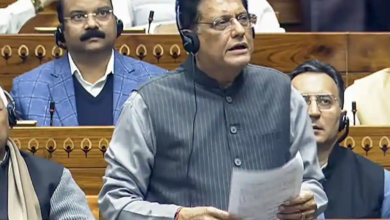Moral Policing Is Not Mandated For Police Officers

The Supreme Court affirmed the decision of the disciplinary authority to terminate the employment of a Central Industrial Security Force constable, stating that police officers are not compelled to practice moral policing or solicit pecuniary favors.
Judges Sanjiv Khanna and J. K. Maheshwari’s panel overturned the Gujarat high court’s decision from December 16, 2014, which had accepted CISF policeman Santosh Kumar Pandey’s appeal and ordered his reinstatement in service with 50% of his lost earnings retroactive to the date of his removal.
Pandey, a CISF constable, was assigned to the Greenbelt Area of the IPCL Township in Vadodara, Gujarat, and there he was charged with misconduct in accordance with a document dated October 28, 2001.
The charge sheet claims that Pandey came forward and questioned Mahesh B. Chaudhry and his fiance after they rode through the area on a motorcycle and halted in a corner on the intervening night of October 26 and 27, 2001, while Pandey was assigned as a constable on night duty at the Greenbelt Area of the IPCL Township, Vadodara, Gujarat.
Allegations state that Pandey took advantage of the circumstance and informed Chaudhry that he would like to spend some time with his fiancée.
The charge sheet claimed that Chaudhry had refused to agree and when Pandey asked him for a gift, Chaudhry responded by giving him the watch he was wearing at the time.
The following day, Chaudhary filed a complaint, which prompted an investigation into Pandey and a decision to terminate his employment.
The bench declared that, in its view, both the facts and the law are flawed in the high court’s justification.
It stated that given the factual and legal situation, they approve the appeal submitted by the CISF and annul the in question Gujarat high court order.
The bench stated that it has concerns with the arguments made in the impugned judgment’s paragraphs because they do not properly consider and apply the judicial review law.
The highest court added that the High Court’s authority under Articles 226 and 227 of the Indian Constitution allows for the exercise of judicial review to correct legal mistakes, including procedural ones that result in obvious injustice or a violation of fairness principles, without typically reevaluating the evidence.
According to the supreme court, the factual conclusions made by the authorities after careful consideration of the evidence should not be changed just because the court came to a different judgment.
News Mania Desk






